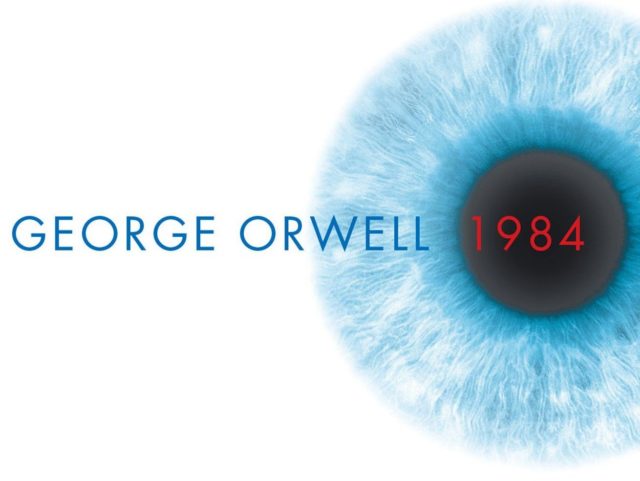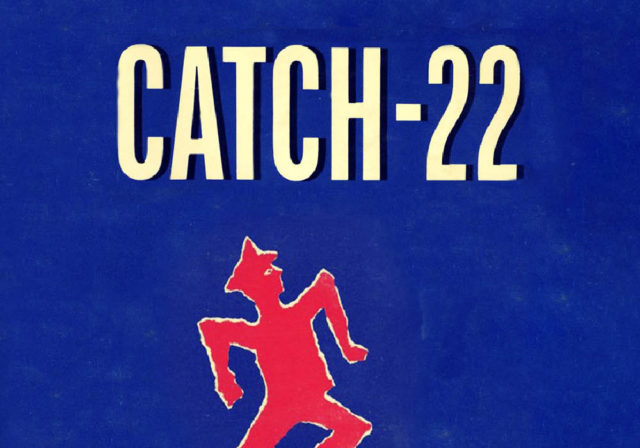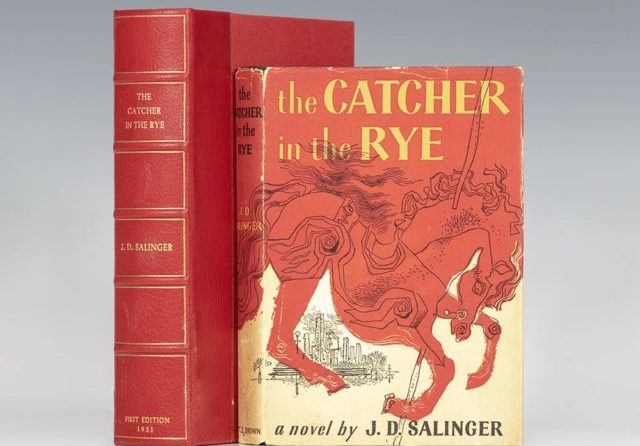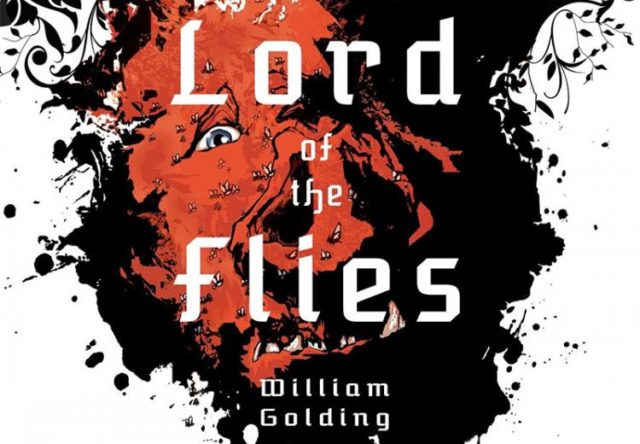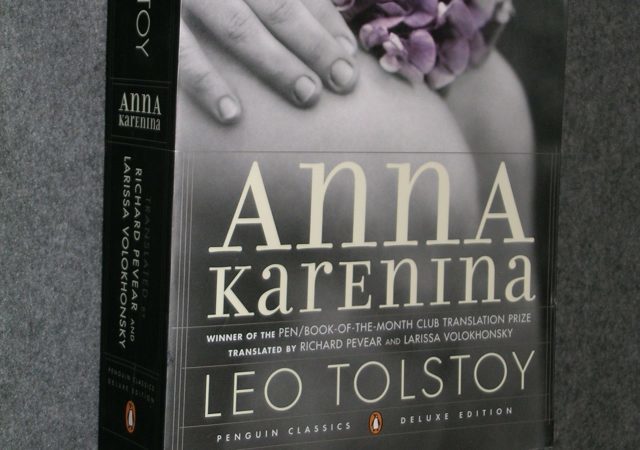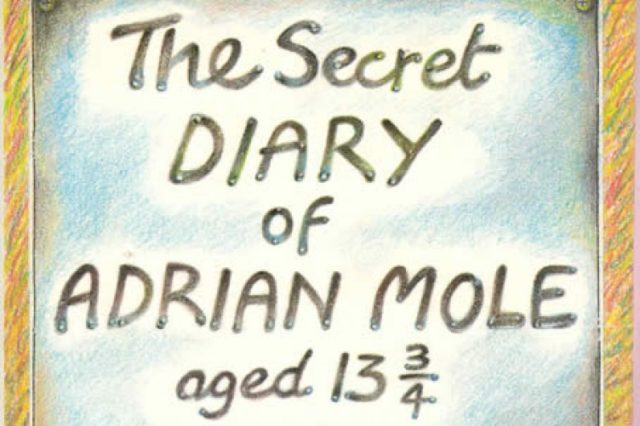In no particular order and no time frame, we have come up with what we believe are the 20 greatest books ever written. Find out what book you would be reading next or see if your favorite book makes the list.
20 Greatest Books and The Authors That Wrote Them
- Catch-22 (1961) by Joseph Heller Regarded by many as one of the greatest books of the twentieth century, Catch-22 is a satirical novel on war and bureaucracy written by American author Joseph Heller. Catch-22’s greatness can be seen through the fact that the title of the novel has since become an idiom used to explain a paradoxical situation. Citing his personal experience in World War II, Heller uses third-person narration to describe various events from the points of view of different characters so the reader learns more about each event from each iteration. The story, however, mainly follows the life of US bombardier pilot Captain John Yossarian.
- 1984 (1949) by George Orwell 1984, also published as Nineteen Eighty-Four: The Novel, was the ninth and final book completed in the lifetime of English novelist George Orwell. Set in an imagined future, the year 1984, the political and dystopian fiction novel talks about a world that is consumed by perpetual war with the existence of omnipresent government surveillance and propaganda. It explores the idea of government overreach, totalitarianism, and repressive ruling within society.
- Pride and Prejudice (1813) by Jane Austen One of the oldest books to make this list, Jane Austen’s Pride and Prejudice can best be described as an excellent expose on marriage, particularly in the Georgian and Regency era of England. Filled with humor that lies in its honest depiction of events, the novel follows the life of the protagonist of the book, Elizabeth Bennet, who learns to appreciate the difference between superficial goodness and actual goodness.
- Lolita (1955) by Vladimir Nabokov Vladimir Nabokov’s Lolita is another literary work that other authors and critics alike agree to be one of the greatest books written in the 20th century. Controversial to say the list, the novel explores the theme of hebephilia as it follows a middle-aged literature professor named Humbert Humbert who is obsessed with a 12-year-old girl named Dolores Haze. To get access to the little girl, Humbert marries her mother, Charlotte Haze, and thus becomes her stepfather.
- The Catcher in the Rye (1951) by J. D. Salinger Described as the quintessential novel of the adolescent experience, The Catcher in the Rye is a coming of age, a fictional novel that explores the themes of angst and alienation, and serves as a critique to the superficiality in society. The story follows the life of the protagonist of the book, seventeen-year-old Holden Caulfield, who has since become an icon for teenage rebellion.
- The Great Gatsby (1925) by F. Scott Fitzgerald Very few writers have been able to come close to F. Scott Fitzgerlad’s near-perfect extraction of the essential meaning of the hope, ambition, desire and cynicism at the heart of the American Dream as he managed in The Great Gatsby. Set in the fictional towns of West Egg and East Egg on the prosperous Long Island in the Roaring Twenties, the story primarily centers on a young and mysterious millionaire named Jay Gatsby and his obsession with the beautiful Daisy Buchanan.
- Ulysses (1922) by James Joyce Regarded as one of the most influential and important authors of the 20th century to have contributed to the modernist avant-garde movement, Irish writer James Joyce’s Ulysses has proven to be the most accurate summation of the entire movement. The novel, which chronicles the peregrinations and encounters of protagonist Leopold Bloom in Dublin on the 16th of June, 1904, earns a place on this list thanks to Joyce’s rich characterization, stream-of-consciousness narrative mode, use of broad humor and experimental prose that was tailor-made for the work.
- Things Fall Apart (1958) by Chinua Achebe The most widely read book in modern African literature and one of the first to receive global acclaim, Things Fall Apart is classic expose on colonialism by Nigerian author Chinua Achebe. The novel examines the life of the Igbo people in the south-eastern part of Achebe’s country before and after the arrival of Europeans. The story follows the main character, a local wrestling champion named Okonkwo, who embodies the traditional values of an Igbo man but is later doomed by the influence of British colonialism and Christian missionaries.
- To Kill a Mockingbird (1960) by Harper Lee Unlike a few other books on this list that took some time before they gained classic status, Harper lee’s To Kill a Mockingbird was an instant success, winning the Pulitzer Prize as it became part of the curriculum of middle and high schools across the United States. Dealing with the subject of racial inequality in America, the story centers around the observations and opinions of a six-year-old girl named Jean Louise Finch whose father, a lawyer, was defending a black man falsely accused of raping a white woman.
- Lord of the Flies (1954) by William Golding Lord of the Flies, one of the greatest books written by Nobel Prize-winning British author William Golding, explores the ideas of civilization and social organization and the impulses of humans towards will to power, living by rules, peacefully, and in harmony. The story centers on a group of British boys in their middle childhood or preadolescence age who are stranded on an uninhabited island following a plane crash and their disastrous attempt to govern themselves.
- A Clockwork Orange (1962) by Anthony Burgess Inspired by the assault of his first wife by a group of American servicemen in England during the Second World War, English writer Anthony Burgess writes about a violent society in the near-future where aversion therapy is used on wild children that belong to a youth subculture of extreme violence. The story follows teenage protagonist Alex, who narrates his violent exploits as well as his attempts to be reformed at the hands of state authorities.
- Wuthering Heights (1847) by Emily Brontë Regardless of the fact that Wuthering Heights challenged Victorian-era ideals in regards to religion, morality, and gender equality, and was also rich in mental and physical cruelty, the novel is today regarded as classic English literature. The story revolves around the tumultuous romance between the strong-willed Catherine Earnshaw and anti-hero Heathcliff.
- To the Lighthouse (1927) by Virginia Woolf Virginia Woolf’s To the Lighthouse is another novel from the modernist genre to make this list of greatest books. Exploring the themes of loss, perception, nature of art, and subjectivity, the novel focuses on the Ramsay family and their visits to the Isle of Skye in Scotland between 1910 and 1920. The plot of the book is, however, secondary to the philosophical introspection of each character through which the story is told.
- The Sound and the Fury (1929) by William Faulkner The Sound and the Fury is another book from the list of literary works that gained popularity long after they were written. Using a number of narrative styles, including stream of consciousness, American author William Faulkner tells the story of the Compson’s, a former Southern aristocrat family who are struggling to deal with the dissolution of their family and its reputation.
- Anna Karenina (1878) by Leo Tolstoy Russian author Leo Tolsy takes readers on a journey through the themes of betrayal, faith, family, marriage, and desire as he expounds on the impacts of an extramarital affair. The plot follows the erotic relationship between the married Anna and the dashing cavalry officer Count Alexei Kirillovich Vronsky, whose relationship scandalizes Saint Petersburg’s social circles and forces the lovers to run away in search of happiness.
- Heart of Darkness (1899) by Joseph Conrad Inspired by Joseph Conrad’s own experiences as the captain of a steamboat on the Congo River in the 1890s, the Polish-British author raises questions about imperialism and racism. Through third-person narration, he writes a part adventure part psychological story that describes the narrator’s experiences and journey into the jungle to meet the mysterious ivory trader, Mr. Kurtz.
- The Grapes of Wrath (1939) by John Steinbeck The Grapes of Wrath is a National Book Award and Pulitzer Prize for fiction winner written by Nobel Prize in Literature recipient John Steinbeck. Set during the Great Depression, the story focuses on a poor tenant farmer family from Oklahoma, who are driven away from their home in search of jobs, dignity, and a future, after drought, economic hardship, and agricultural industry changes, leave them out of work.
- Animal Farm (1945) by George Orwell Animal Farm is the second George Orwell novel to appear on this greatest books list. An allegorical novel, the story centers around a group of farm animals who rebel against their human farmer in hopes of creating a society where the animals can be equal, free, and happy but are however unsuccessful. The story mirrors the events that lead up to the Russian Revolution of 1917 and the Stalin era of the Soviet Union. Read Also: 5 Robert Rosenthal Books and Stories on Psychology and Human Behaviour
- In Search of Lost Time (1913–1927) by Marcel Proust Published in seven volumes, In Search of Lost Time is considered to be Marcel Proust’s most prominent work. While reflecting on the loss of time and lack of meaning to the world, the plot follows the narrator’s recollections of childhood and transition/experiences into adulthood in aristocratic France from the late 19th century to the early 20th century.
- The Secret Diary of Adrian Mole, Aged 13¾ (1982) by Sue Townsend Written in a diary-style, The Secret Diary of Adrian Mole, Aged 13¾ is the first book in Sue Townsend’s Adrian Mole series of comedic fiction. Set in the early 1980s, the story focuses on the worries and regrets of the recent teenager who believes himself to be an intellectual. Due to this, he naively but confidently misinterprets events around him as he names Prime Minister Margaret Thatcher as his worst enemy.


